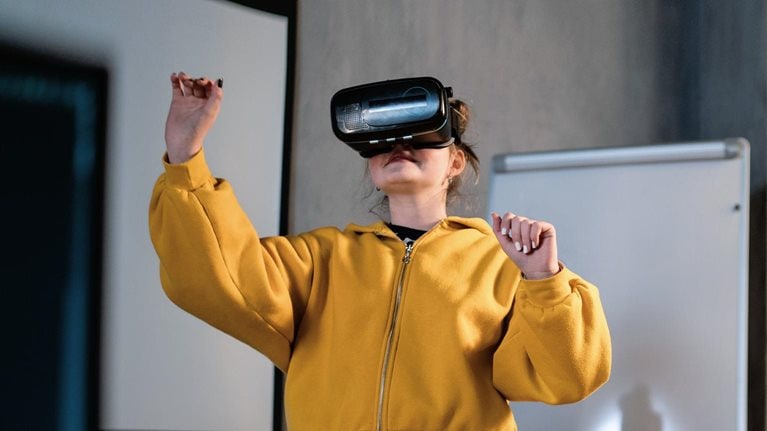With more than 440,000 students across 25 colleges and an operating budget of close to $4 billion, the City University of New York (CUNY) is America’s largest urban university system. “We are indisputably one of New York City’s critical engines for social mobility,” says Félix V. Matos Rodríguez, who in 2019 became CUNY’s eighth chancellor. The first Latino and the first person of color to lead the institution, Matos Rodríguez stepped into the role after a distinguished career as a historian, professor, government official, and college president.
In an interview with McKinsey’s Jonathan Law, the chancellor reflected on the lessons of the past few years and the role of public universities in an increasingly polarized society. The following are edited excerpts of the conversation.
McKinsey: A few months after you became chancellor, COVID-19 shut down campuses across the country. In March 2020, you oversaw the transition of nearly all of CUNY’s 50,000-plus course offerings to remote learning. What are the biggest lessons or takeaways from the pandemic for you and your fellow higher-ed leaders?
Félix Matos Rodríguez: There are a few things coming out of the pandemic that I hope will continue as we move into the future. One is the focus on the importance of teaching. Everybody was concerned about whether faculty members, who all of a sudden had to teach in a virtual environment, had any training or experience in teaching online. One of the good things that came out of the pandemic was this emphasis on professional development in pedagogy.
The second thing that I hope we continue to have is a can-do attitude. If you go through the list of changes we made during the pandemic—going almost totally virtual not just in the classroom but also in services, providing mental-health support to students, helping students who were experiencing food insecurity—if somebody had asked us a year before the pandemic, “Can you do this?” the answer would’ve been, “No.” I hope we keep that same can-do attitude in the post-COVID-19 world when we approach the many challenges and opportunities that we have in higher ed in the road ahead.
Connecting learning with earning
McKinsey: Speaking of challenges, there’s so much skepticism now, maybe more than there’s ever been, about the value of a college education. Students are increasingly concerned that the time and money they spend going to college won’t pay off. How is CUNY preparing students for postgraduation success?
Félix Matos Rodríguez: We are one of the city’s critical engines for social mobility. CUNY is the place where New Yorkers who are immigrants, children of immigrants, and individuals without much economic resources can get a first-rate education. But, of course, there’s always room for improvement.
For one, we need to help students explore the world of work earlier. When I say “work,” I don’t just mean a job in STEM [science, technology, engineering, and math], which is where many of the conversations go now when people talk about career choices; it could be a job as a writer, a teacher, or a whole range of things. But those seeds need to be planted early on. We need to do that more consistently in higher education—particularly with students who might not have as good a vision as to where they want to go, or first-generation college students who have fewer career role models in a variety of fields to help them see what they could become.
That is one thing I’ve prioritized as chancellor: that we begin to be more intentional in helping students explore their options and their passions, helping them create social capital by participating in paid internships and apprenticeships, putting them in situations where they learn—and maybe earn—more quickly. We need to do it in a way that doesn’t push career choices on people but that ensures that career exploration is part of the college journey.
McKinsey: What will it take to make that happen? Will you need to hire more advisers, for example? Or train faculty in a different way?
Félix Matos Rodríguez: Advising will certainly play a larger role. I think faculty members, too, will have to be trained—hopefully, starting in graduate school—for their future role in helping students think about career options. Although our current hiring process focuses on hiring faculty as subject-matter experts, we need to acknowledge that they do much more than that, particularly as students look up to them for guidance.
In my case, I was trained as a historian of the Caribbean. As I taught my courses, I knew that students were acquiring skills in my class that would serve them in life—but my students might not be aware that those skills are marketable. My job was not just to teach them the causes of the Cuban Revolution or the importance of the Haitian Revolution in world history but also to say, “This essay you wrote, and this line of thinking you’re taking, would be helpful in the following kinds of careers or opportunities,” so that students have that in the back of their mind when they think about career possibilities or when they go to job interviews.
Higher ed provides students with important skills, but faculty are often not trained or in many cases have little experience in helping students make those connections between skills and potential careers. Faculty members don’t get training in graduate school to do that, and today that’s not what they’re hired to do. So we have to give them the tools to do it.
McKinsey: It sounds like employers, too, can play an important role in helping students make those connections. What do you think is the ideal model of collaboration between higher ed and the private sector?
Félix Matos Rodríguez: Partnerships with the employment sector are certainly one of my priorities. CUNY Futures in Finance, for example, is our partnership with Bloomberg, Centerbridge, and Goldman Sachs to help students prepare for a career in the financial sector. We want to learn from that partnership and see what’s replicable in other sectors of the economy.
The partnership with the New York Jobs CEO Council is also important to us. It allows us to have direct conversations with employers, not only to find out what their needs are and how CUNY can adapt to be able to deliver what they need but also to discuss how businesses should adapt the way they recruit and bring people in, and their level of responsibility in the educational journey. It has to work both ways.
One challenge we face is that, depending on where you are, most jobs will be in small businesses. How can CUNY serve small businesses, which are all very different from one another? We need to figure that out. We need to offer programming that connects students in a more direct way with small businesses, because as much as every college president loves to talk about how many students they have working at large companies, the reality is that the majority of students are going to be employed in the small-business sector. We’re doing some pilots here at CUNY, but in general, higher ed is still figuring out how to partner with small businesses at scale and with efficiency.
What college could be like in the 2030s
McKinsey: Some people say higher-ed institutions move at a glacial pace—but, as you pointed out, the COVID-19 pandemic showed that they can be adaptable and even innovative. What innovations do you think will happen in higher ed in the coming decade? Paint a picture of how the college experience in the 2030s might differ from today’s.
Félix Matos Rodríguez: I think it will be very different from the college experience today. So, if you’re coming in as a student in 2030, you’ll have some preferences that we should take into account. For example, some adult learners might need flexibility because they are parents or working part-time. You might be a student who’s already been to college, but it didn’t work out for a whole set of reasons, and now you’re back. What kind of experience do you want to have this time around?
We should also be able to work with you fairly quickly to identify how you learn best. Are you the kind of student who learns best through online experiences? Are you someone who needs the physical contact of the classroom to thrive? Or is hybrid learning best for you?
Then, if you have clear ideas about what career you want to pursue, it’s about putting you on that path. You want to be a nurse? Here’s the trajectory, and let’s make sure early on that this is the right thing for you. You might go into surgery for the first time and faint—and decide that maybe you don’t want to be a nurse. For those students who have no idea about which way they want to go, we need to place them in several experiences so they can begin to make decisions as to which path might be the best one for them.
All that information—how you learn, your life situation, the network that you’ll need to build—will all be packaged into your program. And I have no doubt that you’ll have a larger menu of options than you have now. Not every student will come to campus in September and do a full semester until December. Scheduling will be more flexible. You might take just three classes for a month, for example.
McKinsey: That level of personal attention and flexibility sounds like it would be very attractive to students but also difficult for a higher-ed institution to put into practice. What are the first steps toward making that a reality?
Félix Matos Rodríguez: It’s a complicated challenge, and there’s a long road toward making that nimbleness in scheduling occur. People have grown accustomed to a certain routine and rhythm of semesters. Offering flexibility might also require additional staffing that our current budgets do not account for. But, moving forward, the capacity to become more flexible in the way that we organize our course offerings will be key. We absolutely need to tackle it because students will demand it. Students today want a lot more customization of their experience, and we need to find ways to deliver that in the near future if we want to keep attracting individuals to higher education.
Students today want a lot more customization of their experience, and we need to find ways to deliver that in the near future if we want to keep attracting individuals to higher education.
McKinsey: What about the classroom experience? How do you foresee technology, for example, being used in college classrooms in the next decade?
Félix Matos Rodríguez: There’s no doubt that technology will become a bigger part of the entire academic journey. One example that could have a lot of value in the classroom is the simulation that technology can enable—particularly, simulating things from the past. If you’re studying how a coffee hacienda in the 19th century worked, we have technology now that might allow you to visualize that and bring it to life in a way that a lecture can’t.
Through technology, we also now have more capacity than ever to go into repositories of information: documents, photographs, archival materials. And you can bring in more guest speakers. Before, you could bring only one or two speakers to the class because it entailed physical travel; now it can be a Zoom session. In a history class, you can engage with people who live in the region that you’re studying, for example. There is a world of possibilities that will make classes a lot more exciting and more challenging.
But we also need to help students recognize that part of their tool set as they go out into the world is to find ways to retool, adapt, and be flexible. And this is not just about jobs—it’s also about how they’re going to navigate life and civic engagement. Higher-ed institutions need to provide students with the skills to question the dangers and challenges of some of that technology. It’s not just about embracing things without questioning. Part of our job in higher ed is that we need to be, at times, contrarians. We should be a space for innovation, but we also need to be the place where ethical and moral standards are raised so that we can protect ourselves from some types of technology that might not be as useful or as positive.
Creating ‘civically engaged citizens’
McKinsey: You’ve described a number of challenges that you’re currently tackling. Is there one particular issue in higher ed that keeps you up at night? Something that you wish you could solve right away?
Félix Matos Rodríguez: There are a few things that I wish I had the immediate capacity to change. CUNY has long been a national leader in social mobility—anyone who knows two things about higher ed knows that—but I think we need to add another element to the mix: maybe I need to come up with a better term, but for now I’m calling it “civic mobility.”
Part of the role of universities, particularly public universities, is the creation of the next generation of American citizens. But we are not intentional about that. We sort of say, “Well, you’ll come to college, and as a result of the different classes you’ll be taking—some history, some political science, some economics—you’ll become a much more well-educated and civically engaged citizen.” It happens, in many cases. But as we see the country become more polarized and as we see a country in which some conversations are becoming more difficult, we need to be more intentional about creating that space in higher ed.
Equally, we need to be more intentional on the subject of diversity. CUNY is one of the most diverse university systems in the country, and we’re proud of that, but are we really good at teaching students how to take advantage of that diversity? We assume it’ll just happen as a result of you being in classes with people who are different from you. Human nature is that you tend to gravitate to people who do the things you like, or who are like you. Maybe, as soon as you come to campus, we should be giving you tools to help you navigate approaching people who are different from you, so that it becomes easier for you to take advantage of that diversity and make it part of your personal and professional journey.
McKinsey: What might that look like? What are some ways that CUNY can provide students with those tools?
Félix Matos Rodríguez: When I was president of Queens College, we piloted a class that was mandatory for all freshmen and transfer students. That could be one avenue. Or we could put different sessions or courses [on diversity and civic engagement] all across the curriculum. I don’t think there’s one cookie-cutter approach. And these are tricky topics—they can become politicized—but I think that we need to find ways to be more intentional about it. And I think there would be public support for this endeavor.
The way I see it, fostering civic mobility is part of fulfilling our larger role as a public university. And it’s something that we already do—but we’re not yet doing it with the intentionality that I think the moment requires.


